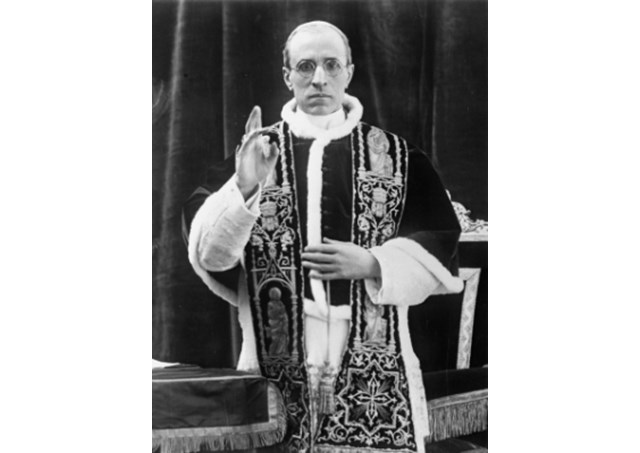
Low countries: Church policy at the time of WWII

(Vatican Radio) ‘Pius XII and World War II : assumptions and new archival evidence’, that was the title of a conference that took place here in Rome on Thursday October 2, 2014.
Among the participants were historians Professor Lieve Gevers of the Catholic University of Leuven in Belgium and Professor Jan Bank of the University of Leiden in Holland who have done some research together in an effort to shed light on the reaction of different Churches across Europe regarding issues connected to the Second World War. Reactions which often differed from country to country as Veronica Scarisbrick found out when she spoke to these two Professors from the Low Countries.
Listen to Professor Lieve Gevers of the Catholic University of Leuven in Belgium and Professor Jan Bank of the University of Leiden in Holland in an interview with Veronica Scarisbrick:
Professor Gevers highlights how while the German occupiers influenced Church policy in both nations, in terms of the two churches’ attitude towards the persecution of Jews and the holocaust the policies adopted were dramatically different.
While Belgian cardinal, Jozef-Ernest van Roey who served as Archbishop of Meichlin adopted a diplomatic approach, Dutchman Archbishop Johannes de Jong of Utrecht created cardinal by Pius XII in 1946 was far more outspoken.
Both prelates says Professor Lieve Gevers were motivated by the same reasons and ideas but the result of their decisions carried with them responsibility and an ensuing moral question.
As in this case of the Dutch Archbishop who with his outspoken manner provoked a retaliatory effect on the part of the Germans which led to persecution, imprisonment and the death of Jews.
With hindsight one can affirm the Professor remarks, that the cautious attitude, similar to that of Pius XII, adopted by the Belgian Archbishop was the safest. Despite this she adds historians can never answer the moral dilemma with their research.
Professor Jan Bank also examines this question taking it a step further by explaining that history has taught us that you also have to take into account the broader picture. That’s to say what kind of occupation is taking place in a nation, what kind of regime is in place and even what influence a papal nuncio might have in a given country.
Also important he says in many nations was the presence as key players of other churches, for instance in Holland the Dutch Reformed Church, a solidarity which gave birth to the first ecumenical protests and policies.
| All the contents on this site are copyrighted ©. |


